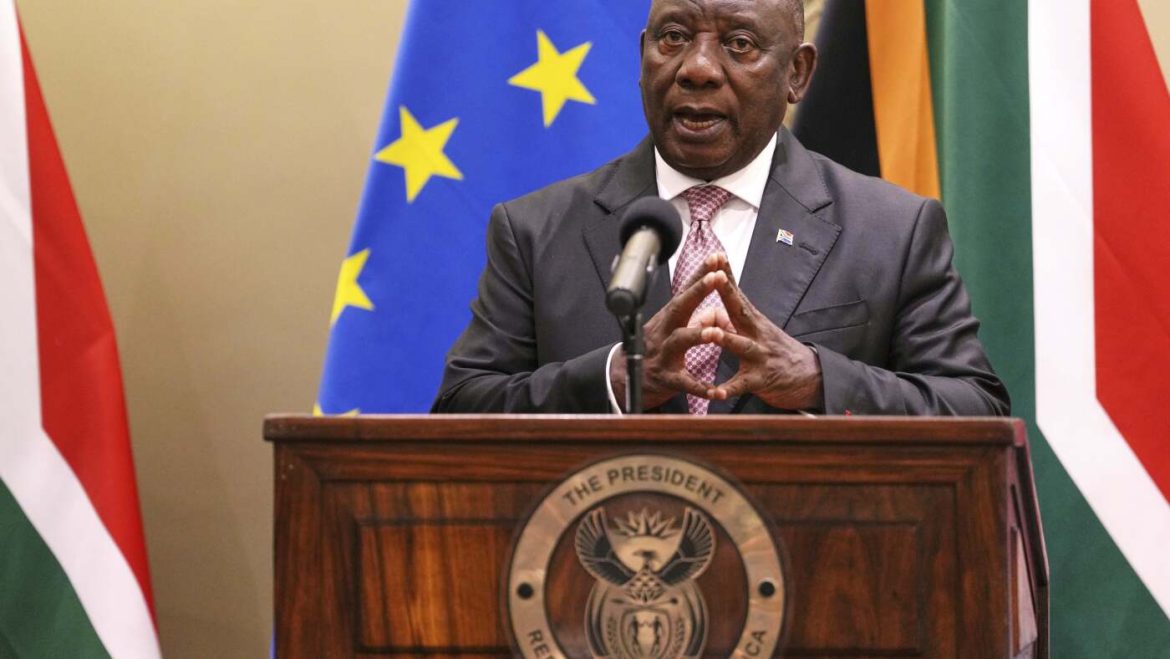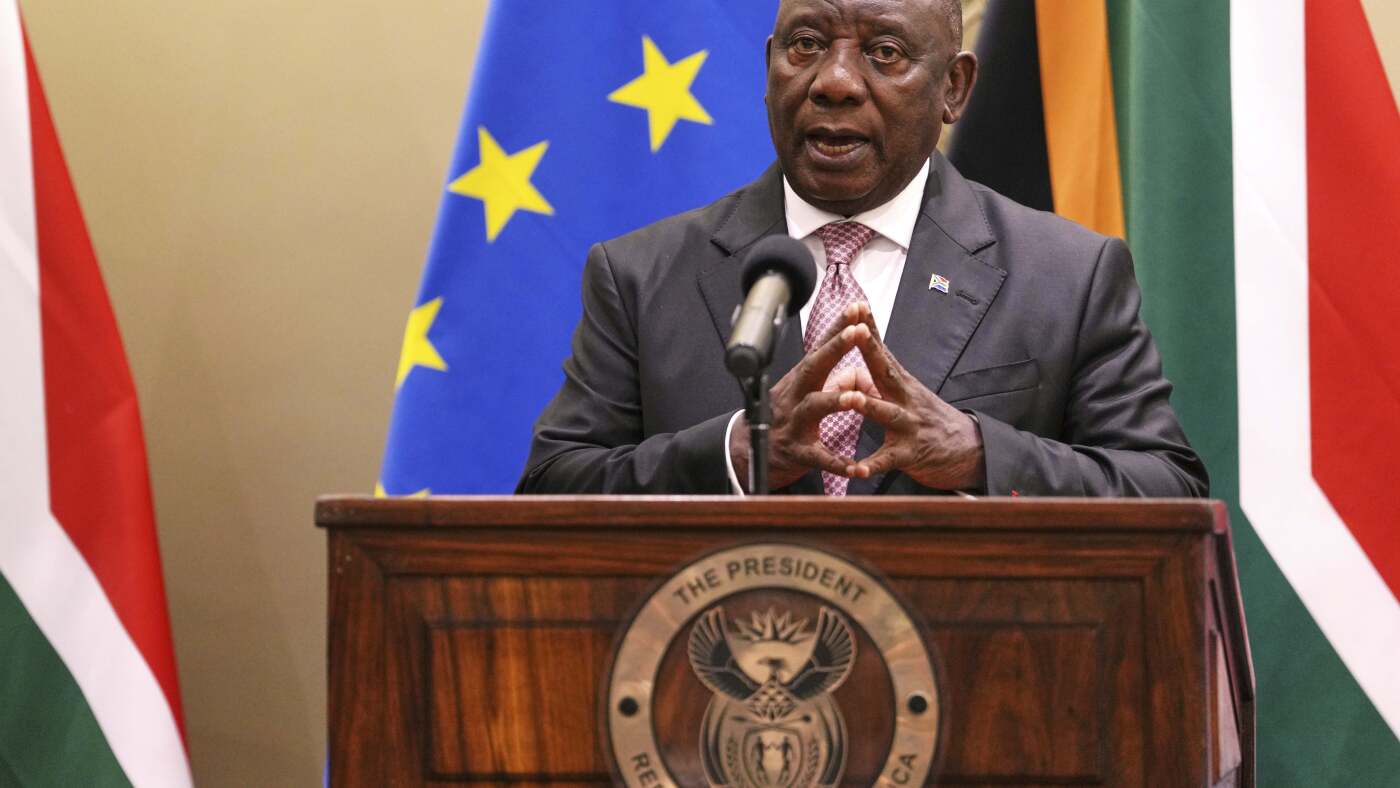South African President Cyril Ramaphosa’s upcoming visit to the White House signifies a crucial juncture in the diplomatic relationship between South Africa and the United States. Against a backdrop of escalating tensions marked by President Donald Trump’s persistent criticism of the South African government, this high-stakes meeting on May 21, 2025, offers a rare opportunity to recalibrate bilateral ties, address contentious issues, and explore mutually beneficial pathways forward.
Navigating a Fraught Diplomatic Landscape
Ramaphosa’s journey to Washington comes amid a period of strained interactions between the two nations. President Trump has publicly assailed South Africa on several fronts, including allegations of human rights violations and what he describes as a controversial land reform policy—often framed in terms of “land grabs.” These criticisms not only challenge South Africa’s internal policy choices but also threaten the broader spectrum of cooperation that historically existed between the two countries.
Adding complexity is Trump’s administration’s recent decision to grant refugee status to a number of white South Africans under the rationale of “racial discrimination,” a claim strongly contested by South African officials. This move has heightened sensitivities, evoking historical and racial fault lines intrinsic to South Africa’s past and present. The arrival of these refugees in the U.S. under Trump’s plan acts as a diplomatic flashpoint, making Ramaphosa’s visit all the more critical.
Ramaphosa’s Diplomatic Approach: Charm, Trade, and Pragmatism
President Ramaphosa is no stranger to high-pressure negotiation. His historical role as chief negotiator for the African National Congress during the dismantling of apartheid equips him with a wealth of experience in navigating complex political waters. The media frequently highlight his capacity for diplomatic charm and strategic engagement, which he has previously deployed in multilateral settings, including efforts at the G20 summit where attempts were made to connect with President Trump over their common interest in golf.
For the White House meeting, Ramaphosa is preparing to leverage this mix of personal diplomacy and pragmatic trade proposals. South African officials are reportedly readying a trade deal offer designed to shift the conversation from confrontation to cooperation. This approach seeks not just to neutralize criticism but to proactively demonstrate the mutual economic benefits of a stronger partnership, particularly appealing to U.S. business interests.
One noteworthy business angle is the emphasis on opportunities involving prominent South African-linked enterprises, such as Elon Musk’s ventures, which are frequently cited as a bridge between the countries. Showcasing such business ties allows Ramaphosa to highlight the tangible, economic interdependence beyond political disputes.
Addressing Sensitive Issues: Equity, Refugees, and Regional Stability
The visit cannot avoid addressing thorny topics that strain relations. Central among them is South Africa’s equity mandate—policies aimed at redressing historic economic inequalities. Trump is expected to confront Ramaphosa on these mandates, reflecting U.S. concerns about their impact on property rights and economic freedoms. For Ramaphosa, this is a delicate balancing act: affirming the legitimacy and necessity of transformational policies within South Africa while reassuring the U.S. that they will not destabilize economic or investment climates.
Additionally, the topic of Afrikaner refugees who have been resettled in the U.S. under Trump’s refugee policy will likely come to the fore. While the U.S. administration frames these individuals as victims of racial discrimination, South Africa vehemently denies systemic persecution based on race. Ramaphosa must navigate this sensitive issue tactfully to defuse tensions without undermining his government’s stance or alienating both domestic constituencies and the international community.
At the regional level, discussions will probably encompass South Africa’s role in maintaining stability across Africa, a mutual interest for both capitals. Ramaphosa’s leadership can be positioned as a key factor in fostering peace and economic growth in the continent, aligning with U.S. strategic goals in global and regional governance.
Strategic Reset or Cautious Engagement?
The symbolism of Ramaphosa’s visit communicates an eagerness on South Africa’s part to “reset” the troubled relationship. However, the outcome hinges on several variables: the tone and substance of dialogues, Trump’s receptiveness to collaboration over confrontation, and the ability of both sides to transcend disputes rooted in historical grievances and contemporary policy divergence.
Observers note that the White House spokesperson’s initial silence on the meeting and the administration’s aggressive public stances suggest a cautious or even confrontational posture. Yet, Ramaphosa’s diplomatic agility and willingness to offer concrete proposals, especially in trade and investment, enhance the prospects for a constructive exchange.
Moreover, both leaders may find common ground on global issues beyond bilateral tensions, such as regional security and economic development, which could serve as a foundation for rebuilding trust.
Conclusion: A Pivotal Moment with Uncertain Outcomes
President Cyril Ramaphosa’s May 21 encounter with Donald Trump stands as more than a routine diplomatic engagement; it is a critical test of South Africa’s ability to manage international pressure and reaffirm its sovereignty while fostering economic and strategic partnerships. Success will require blending the art of diplomacy with pragmatic negotiation—employing charm, clear economic incentives, and firm yet conciliatory responses to contentious issues.
Whether this visit will mark a thawing of relations or underscore persistent divides remains uncertain. But it undeniably reflects South Africa’s commitment to actively shaping its global alliances amidst challenging circumstances. The world will be watching closely as two leaders navigate a complex tapestry of history, policy, and personality to either mend fences or deepen rifts in this key international relationship.


